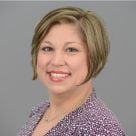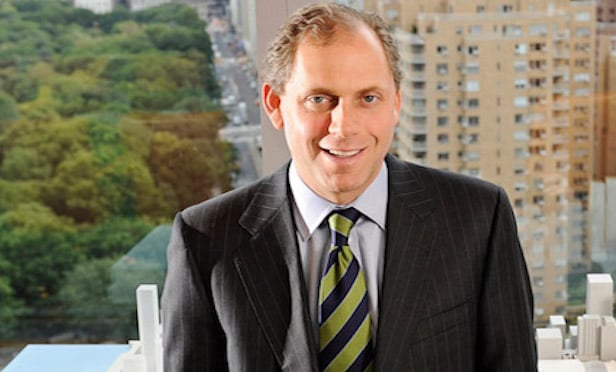These three JLL executives have a unique perspective: they're all former public sector employees who now serve that field from positions in the private sector. With 25 years of experience in federal real estate, privatization and federal budgeting/financial management, managing director Kim Burke leads Jones Lang LaSalle's Public Institutions practice in the Washington, DC office. She also heads up the Mid-Atlantic chapter of JLL's Women's Network, its national employee resource group dedicated to the female workforce.
She's a close mentor as well to two SVPs in the PI practice whom she also considers good friends. Janet Rice has had a 14-plus relationship with Burke even before JLL. Among other duties, she consults the US Department of Transportation out of DC. Marnie Gale, an SVP in the Boston office, has known Burke since joining JLL seven years ago. Today she focuses on affordable housing solutions for US military veterans. The three sat down to discuss the differences between their former and present lives.
SULE AYGOREN: Tell me how you found yourself in real estate in your career?
KIM BURKE: Technically, I started searching titles in my dad's law office when I was 13. I thought, I never want to be in real estate if this is what you have to do. To do a title search there's all sorts of blocks you have to do, you have to do claims and judgments. I didn't think much more of it.
Then, after grad school I started working for the federal government, where I worked on a lot of credit programs, loans, and guarantees. Many of them involved real estate, like the HUD and FHA programs. That sparked an interest in real estate that led to me moving into the private sector to work on those programs and more on the federal real estate side of things.
MARNIE GALE: I came out of undergraduate and went to work for New York City government doing affordable housing development. I did that for a few years and went back to graduate school, business school specifically. I had the opportunity to get to know Jones Lang LaSalle and its public institutions group while in school. I found that it was a perfect fit with my desire to move into the private sector, but continue to work on public sector issues within real estate.
JANET RICE: I'm sort of the oddity because I started in nonprofit with the state government and went to federal government. It was at Office of Management and Budget when I met Kim. It was actually through my relationship with Kim at OMB that I fell into the job at Ernst & Young and then followed her to Jones Lang Lasalle just to continue with the group. I've known her for longer than 14-and-a-half years, but we've formally worked together for that long.
AYGOREN: Do you think that there are more opportunities for women in the public sector, or it attracts more women?
RICE: It's something I struggle with because it still feels like a very white male-dominated world. I give folks a hard time a lot that I feel like I work for Mount Rushmore Industries. I do think that because of the public sector focus that Kim's involved in and because the government owns so much real estate, there is that ability to maintain that tie. I don't know. When I look at Kim's PI group, there are a lot more women engaged there.
BURKE: It's interesting because when I started with the government, my bosses at both Congressional Budget Office and OMB were women. The government is very forward thinking as far as women in leadership positions.
When I got to Kenneth Leventhal's real estate group, I used to make a joke when I went to the partner-principal meetings. It's a big conference room full of hundreds of people, and I would say the one good thing is there was no line for the ladies room. It's absolutely true in the commercial real estate world. Maybe we were in the public sector, which is actually very big. The DOD is the largest landholder in the world and the VA is a close second. It's a really big market, but it wasn't as glamorous. Women were able to kind of get a better foothold in it.
GALE: I do think the PI group in which we all work is very unique. We obviously are real estate-focused; we touch on so much more. I think on a day-to-day basis we're consultants. That differentiates us from a lot of the real estate industry. I don't know if disproportionately you could say there are more women in our particular niche than others, but it feels like it.
RICE: The thing I would add is you're talking to three women who came from, or worked at some point in their careers, in government. That's the thing that's always attracted me to the real estate work we do in the commercial world, especially working for Kim. She always reminds us of the long-term mission of what we're doing. We're engaged in helping our clients help others—they're all federal agencies or state agencies or government agencies with missions. I think as a woman, that's something that's important to me. I want to feel like what I do makes a difference.
BURKE: One of the things that our team is most proud of is some of the work that Marnie is doing, bringing homeless housing to veterans. She's working on several thousand units right now. We have the opportunity in the commercial real estate environment to do well, but also to do good at the same time. It's one of the things we love about what we do every day.
GALE: I absolutely agree. It's one of the best parts of my job.
AYGOREN: Shifting gears a bit—you're all in the public sector. How have the latest budget cutbacks impacted your business?
BURKE: It's murder. First of all, it's different competition for the jobs. It used to be that we'd have two or three competitors going after a job. We now see all the usual suspects. We see a lot more people competing for a smaller pie.
Secondly, we have to work a lot harder on behalf of our clients, especially, for example, on the VA side. With a shrinking pool of money and an increasing pool of veterans, they still have to get the facilities they need, whether through leasing or building them, to take care of the health of the veterans.
AYGOREN: Mentorship is a very important thing for anybody entering this business. What do your mentorships mean to you?
BURKE: In the government I had a few mentors. When I started at Kenneth Leventhal, there was a man named Robbie Little who was my absolute mentor and taught me the ropes, everything about real estate and consulting and how to operate within a big firm, when we moved to EY. I credit him with a lot of the way I approach things.
RICE: Kim is the reason I've been in this career for so long. I think the mentor in many ways is a big reason for sticking with something.
GALE: I would absolutely agree. I've been very fortunate to have my mentor also be my manager for the past seven years. I think that has benefited me in many ways.
BURKE: As the “mentor” in this environment, I am mentored by both Janet and Marnie and others far more than I give back.
AYGOREN: As a mentor or mentee, then, what would you say to someone just entering this business?
BURKE: Your career is going to take a lot of twists and turns. It's like a river. You can't force it into something that it's not. You just kind of have to go with the flow and look for the opportunities when you find them.
RICE: And sometimes you have to row upstream to go where you have to go.
AYGOREN: As many advances as have been made, do you think there's still a double standard in the business when it comes to gender?
BURKE: In the beginning of Lean In, Sheryl Sandberg talks about women who get promoted because of their accomplishments, while men get promoted because of their promise. I think that's true everywhere.
GALE: The workplace for us is hard. It certainly helps when the people at the top set the tone in the right way and are supportive of flexible worker needs.
BURKE: Everybody on my team knows that I never miss a family event. I kind of made this policy. I had a mentor back in the government who had a policy that he never missed his daughter's softball games.
AYGOREN: In your sectors and for the commercial real estate business overall, where do you see the industry headed?
BURKE: I do have to say, though, that we've been very fortunate here at Jones Lang LaSalle because the leadership of the firm has been very open and supportive in allowing us to go out and chase our dreams, if you will—chase after the types of work that we want to do in real estate. The environment contributes to that in a very positive way.
They're putting their money where their mouth is as far as the women's perspective. It starts at the top. Our CEO, Colin Dyer, is very adamant about diversity and women, and making sure that JLL is a leader in that field. I for one am really proud of the firm for taking that perspective. We've got a chief diversity officer. They started a women's network, women's employee resource group with all sorts of events and training and speakers. They're really making a very strong effort to foster more of a kind of open environment for women with the ability to do things like flex time or part time. I really applaud the firm's leadership here.
RICE: There's also something to the fact that JLL feels like a very young environment. You don't have to be 55 before you get promoted to managing director. We have a lot of young people in fairly senior positions, both men and women. This generation of men is also somewhat different. They see the world a different way, maybe through their daughters' eyes, and have a better appreciation about creating opportunities for women.
FAST FACTS
Favorite vacation destination?
BURKE: I can't say Walt Disney World because I've been there more than 40 times.
RICE: Some place where my computer and Internet doesn't work?
BURKE: Janet, thanks for making a point. Marnie, you went on a safari. Would you go back again? Janet, you lived in Hawaii—wouldn't you go there?
RICE: Which is why Hawaii is not a vacation destination. Six years is long enough.
GALE: Anywhere with a beach and a pool. Warm, but not too hot.
Last book you've read?
BURKE: I'm in the process of reading Lean In. Before that, it was this great book called Major Pettigrew's Last Stand.
GALE: Would I be embarrassing myself if I told you guys the last book I read was The Happiest Toddler on the Block?
RICE: My problem is I read RFPs all day, so reading a book for fun is difficult. The last kind of fun book I read was The Weird Sisters.
Favorite movie?
BURKE: While You Were Sleeping with Sandra Bullock.
RICE: Harold and Maude is my all-time favorite movie.
GALE: Movies? I probably know more about the Fresh Beat Band than I need to know right now. I used to love Pretty Woman.
Favorite food?
GALE: I can do pasta. Italian? I'm there.
RICE: Sushi, anything Japanese. Mexican a close second.
BURKE: Definitely pizza.
One surprising thing about you?
GALE: Everyone is always surprised to find out that I once changed a flat tire for my New York City taxi driver outside the Lincoln Tunnel in high-heeled boots and a business suit.
BURKE: You'd have to see Marnie to know this, but she's five feet tall.
RICE: My first job when I was 16 years old was working with my mom doing market research. I was that girl who stood outside of the grocery store and asked you what kind of chewing gum you used and if you wanted to do a peanut butter taste test.
BURKE: In high school, I was the mascot for our football team, which was a black hawk. I wore a black hawk, a bird outfit with a big bird head and everything.
© 2025 ALM Global, LLC, All Rights Reserved. Request academic re-use from www.copyright.com. All other uses, submit a request to [email protected]. For more information visit Asset & Logo Licensing.







